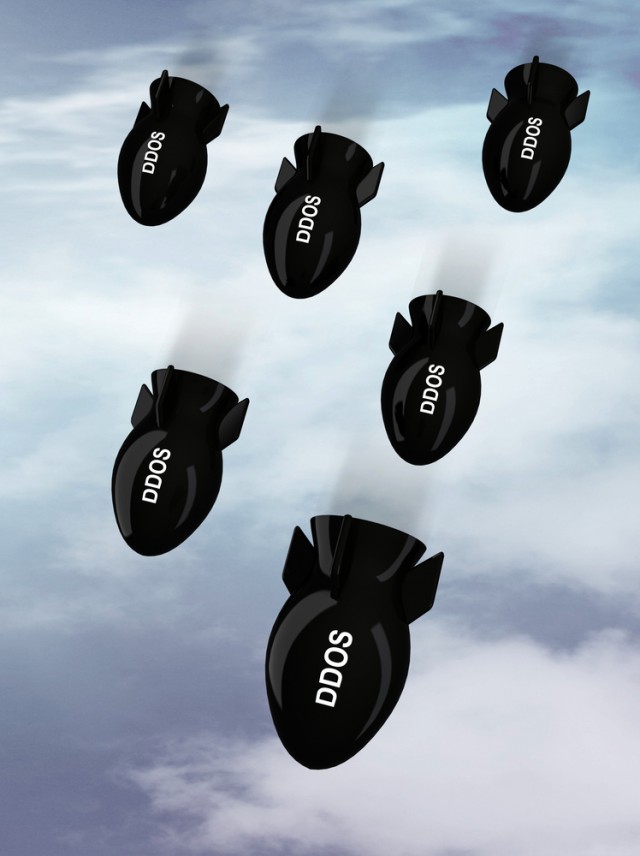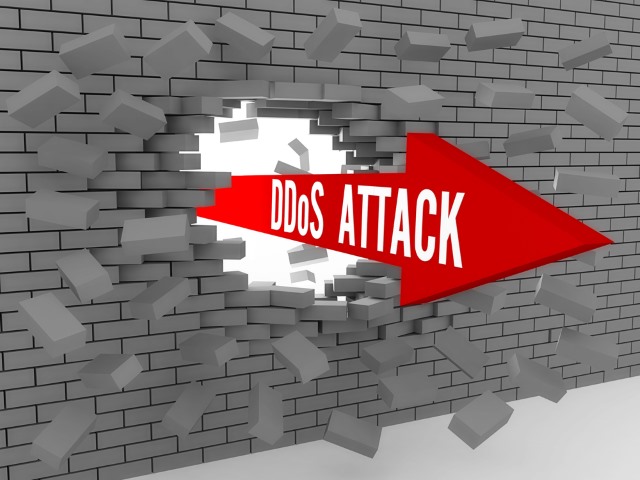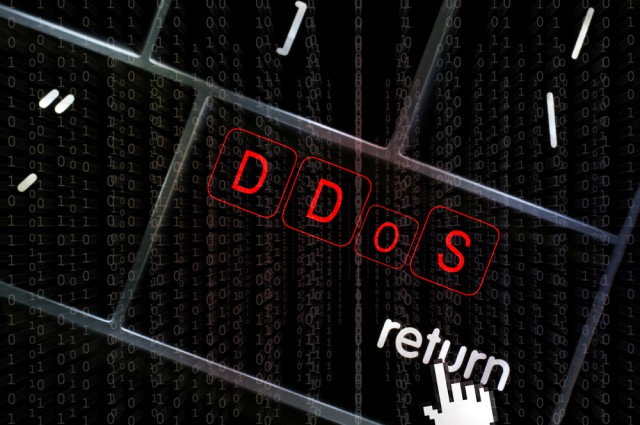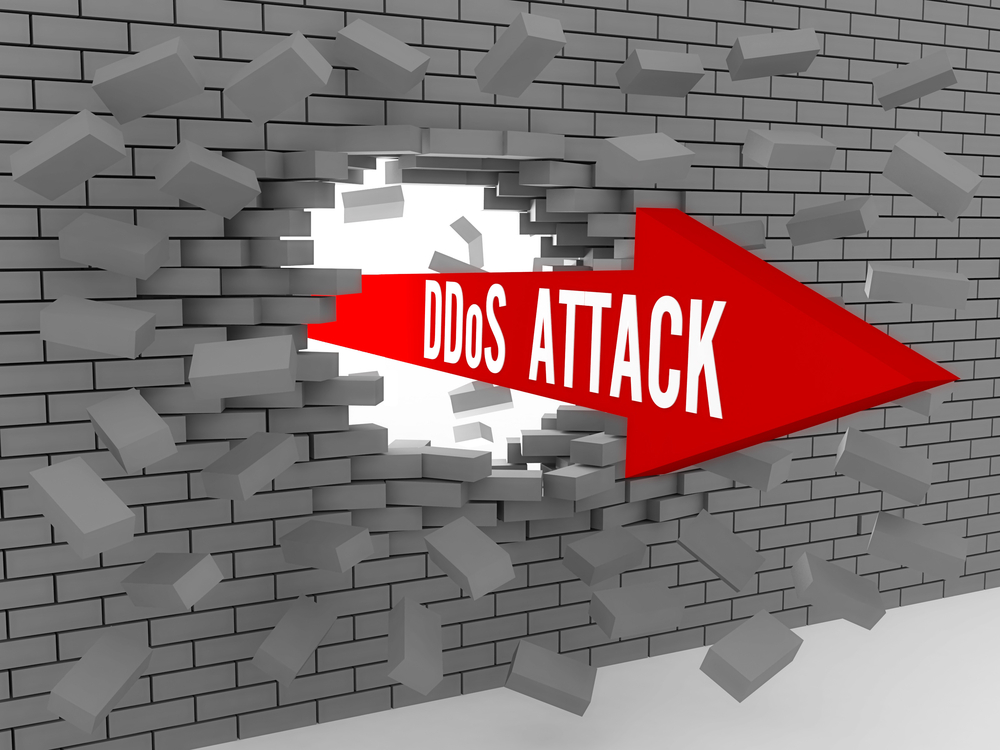
Attack researchers are top target of DDoS activity
We all know that the cyber security world is a constant war of attrition, but it seems that DDoS attackers are targeting those firms which represent a direct threat to their business model.
According to a new report from cyber security company Nexusguard, an attack research group, Loryka LLC, was the number one target in the first quarter of this year, with 90 DDoS attacks.

Companies invest more in DDoS protection
Pretty much every company out there has been, or will be a target of a DDoS attack. A new report by real-time information services provider Neustar, entitled The Threatscape Widens: DDoS Aggression and the Evolution of IoT Risks, released this month, says it’s no longer the question of "if" or "when" a company will be DDoSed -- it’s how often and how long will it last.
According to the report, 73 percent of companies were attacked in 2015, with 82 percent of those attacked suffering multiple attacks. Out of that number, 45 percent said they were attacked six times, or more. In EMEA, 47 percent of companies were attacked at least five times.

Why DDoS is far from dead
Distributed Denial of Service (DDoS) attacks that are carried out by a botnet (a network of compromised computers) to overwhelm the processing power of the victim computer, effectively taking it out of commission, have been around for a while.
Peaking in 2000 with high profile attacks against Yahoo, eBay, CNN.com, Amazon.com and other e-commerce sites, they evolved in 2010 to be used by Hacktivists such as Anonymous in their Operation Payback, which escalated into a wave of attacks on major pro-copyright and anti-piracy organisations, law firms, credit card and banking institutions. Traditionally, DDoS attacks were network‐based. In such volumetric-based attacks, the attacker flooded the victim computer with information, taking up all of the victim computer’s bandwidth and infrastructure, overwhelming the victim computer’s ability to process the volume of information. Scripts for such attacks have become readily available on the Internet, as well as the Darknet. Therefore, it seemed as if DDoS was "old news".

ISPs offer inadequate DDoS protection
A new report from Corero Network Security, which provides security solutions against distributed denial of service (DDoS) attacks, shows that 85 percent of enterprise end users want their Internet Service Providers (ISPs) to offer better protection against DDoS attacks.
To compile its research, the security company polled more than 100 ISPs and 75 enterprise customers in regards to their DDoS mitigation strategies. Corero found that a high number of ISPs still rely on outdated technologies to protect their customers from these attacks.

77 percent of companies don't have the capability to respond to cyber attacks
Only 23 percent of organizations are capable of responding effectively to a cyber incident. This leaves the remaining 77 percent often having to purchase support services after an incident has occurred.
This is among the findings of the latest Global Threat Intelligence Report from security company Solutionary. The report is made up of information from 24 security operations centers, seven R&D centers, 3.5 trillion logs, 6.2 billion attacks and nearly 8,000 security clients across six continents.

Only a third of businesses have proper DDoS protection
Among the biggest cyber-threats to businesses nowadays are phishing, patch exploitation, trojans and DDoS (Distributed Denial of Service), yet new figures show that a quarter of companies don’t have an anti-DDoS protection set up.
Those are the results of a new survey by security firm Kaspersky Lab and B2B International. According to their research, approximately half of businesses surveyed understand the risks cyber-attacks pose, not just to their financials, but also to their reputation. Approximately, the same percentage also thinks being protected from DDoS attacks is an important cybersecurity requirement.

Losing customer trust is a major concern for DDoS targets
The loss of trust and confidence of customers is the most damaging consequence of a DDoS (distributed denial of service) attack, a new survey by Corero Network Security says.
In the annual survey, entitled DDoS Impact Survey, losing trust is the most damaging consequence for 50 percent of those surveyed, followed by lost revenue, for 34 percent. The surveyed include IT decision makers (ITDMs), network operators and security experts that were present at the recently held RSA 2016 conference.

More than a third of UK universities are under attack every hour
VMware today announced research revealing that over a third (36 percent) of UK universities are under attack by a cyber attack, on not just on a daily basis, but each hour. Furthermore, the attacks are so frequent and widespread that 83 percent of universities believe that cyber attacks are increasing in frequency and sophistication.
VMware’s research shows that a high percentage of University campuses are being singled out and attacked due to their open architecture.

Your business doesn't have a website? A DDoS attack can still happen
Just because your business doesn’t have a website, that doesn’t mean it can’t be a victim of a DDoS (distributed denial of service) attack. This sentence might not make much sense at this point, but keep reading.
Security firm Kaspersky Lab and researchers B2B International looked at what cyber-crooks go for when attacking businesses and enterprises, and here’s what they came up with:

GRE tunneling: Keeping human traffic unaffected during DDoS attacks
Picture a standard subway ride during rush hour. The car, of course, is crammed full. Some of those subway riders are pleasant commuters, and some are subway villains like pickpockets and purse-snatchers. Now imagine someone has invented a private subway that quickly and efficiently connects you and other pleasant commuters to the subway station in your neighborhood. You don’t have to deal with slowdowns, unexpected stops, or any of the risks associated with being lumped in with the aforementioned subway villains.
Now stop imagining, because someone has invented such a blissful sort of system. It’s just that instead of being a form of transportation it’s a method of directing legitimate human traffic to a website while it’s being protected from a DDoS attack. Not the best news for your commute, but great news for your website.

Google's Project Shield protects news and human rights sites from DDoS attacks
The web facilitates free speech, but it also gives groups the opportunity to try to silence those they disagree with. DDoS attacks are common way to retaliate against opposing views, and today Google is expanding Project Shield to protect sites from such attacks.
Project Shield is not a new service, but it has been limited to a group of testers since its launch a few years back. Designed to detect and eliminate "DDoS as a form of censorship" the free service is now available to everyone -- those who qualify, at least. The aim is to protect news and human rights sites to ensure uninterrupted access to news and information.

Huawei and Nexusguard partner to offer DDoS protection
DDoS attacks are one of the most worrying threats that enterprises face. Chinese hardware company Huawei and security specialist Nexusguard are launching a new joint solution that offers enterprises and internet service providers state-of-the-art DDoS protection using software-defined networking (SDN).
The companies will combine Nexusguard's cloud-enabled Origin Protection and Huawei's DDoS Protection System Appliances, giving customers low latency and multi-layered protection that can accurately and quickly defend their systems with hybrid implementations.

DDoS attacks are now more sophisticated
Kaspersky Lab has released its report into DDoS attacks for the fourth quarter of 2015, and it claims that the global reach of attacks shrunk, but the sophistication of those attacks grew.
According to the report, in the fourth quarter of 2015, resources in a total of 69 countries were attacked. In the previous quarter, that number stood at 79. Similar to the previous quarter, in the last three months of 2015 the majority of attacks (94.9 percent) took place in just ten countries, with the US, China and South Korea being the most affected of the bunch.

BlackEnergy 3 malware targets Ukranian power facilities
The BlackEnergy malware first appeared in 2007 as a relatively unsophisticated program that that generated random bots to support Distributed Denial of Service (DDoS) attacks.
Endpoint security specialist SentinelOne has detected a new variant of the program which was used last month to attack a Ukranian power facility. It also believes that this latest variant may be state-sponsored.

How your servers might support a DDoS attack
The largest scale of internet attacks enlist thousands or tens of thousands of previously hacked computers to simultaneously attack and overwhelm the websites and e-commerce services of selected victims.
Whilst there is often media coverage of the victim organizations affected, and sometimes discussion about the motivation of the attackers, there is rarely any awareness by those computer owners that are participating in attacks and facilitating online crime.
